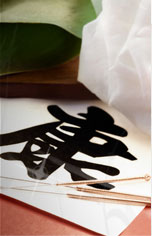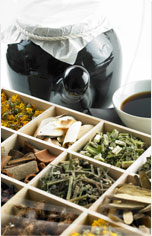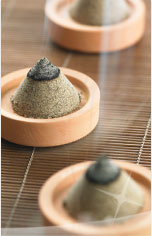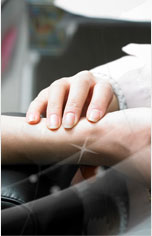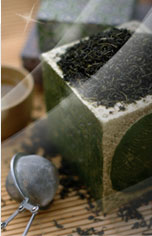Anxiety in TCM
In Traditional Chinese Medicine (TCM), anxiety disorders fall into the disease category of Shan You Si (善忧思), referring to a tendency to worry and continuous or excessive thinking.
Compared to Western medicine, which sees anxiety as a dysfunction of brain chemistry, TCM views anxiety as an imbalance in the internal Zang Fu organs, especially the Spleen, the Kidney and the Heart. Worry, focusing too much on a particular topic, and excessive mental work are symptoms of Spleen disorder; being fearful, insecure, isolated, and having weak willpower are symptoms of Kidney disorder; lack of enthusiasm and vitality, mental restlessness, despair are symptoms of Heart disorder.
Emotional imbalances can act as both symptoms and root causes for physical illness. Organs can develop imbalances and dysfunctions from dietary, environmental, lifestyle, and hereditary factors. If a person experiences one or more of these emotions for a long time, it can cause an imbalanced emotional state and lead to various anxiety disorders. On the other hand, if the flow of Qi (the vital energy of the body) is interrupted by extreme or prolonged emotions, it can cause of imbalances and dysfunctions of the corresponding organs, making the emotional imbalance worse.
NOTE: The names of organs are capitalized when referring to the entire, functional organ systems in TCM perspective: Liver, Blood, etc. The names of organs are lower-cased when referring to the distinct, biomedical organs: liver, blood, etc.
TCM Treatment for Anxiety
Because the mind and body are intimately connected, TCM treatment focuses on calming the mind and relieving anxiety while restoring the balance of organ system at the same time.
TCM treatments for anxiety are unique for each patient, as every person has a unique constitution and imbalances. As a patient’s symptoms and issues change, the treatment will be adjusted accordingly. Healing time depends on the severity of symptoms and general health of the patient. Some patients report relief after just one session of acupuncture, while others may take up to several weeks to months to notice improvement. A typical acupuncture treatment schedule may begin with 1-2 sessions a week, tapering as the patient’s symptoms improve.
Acupuncture
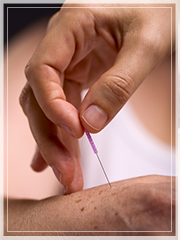
Acupuncture consists of stimulating specific points on the body by inserting fine, sterile needles. Acupuncture benefits both physical and mental/emotional functioning by promoting the smooth flow of Qi and restoring the balance of internal organs.
Numerous scientific studies and controlled clinical trials have been conducted in order to measure and explain the effects of acupuncture. The results of these studies have shown that acupuncture stimulates the neurotransmitters involved in emotional regulation, such as serotonin and endorphin, increases blood circulation, regulates reproductive hormones, alters pain receptor-pathways, and reduces inflammatory responses.
A clinical study conducted in China in 2010, has concluded that acupuncture is a ‘safe and effective’ treatment for mood disorders including depression and severe anxiety. Acupuncture can also increase the effectiveness of medication-based treatments.1
According to a study from 2015, acupuncture has improved the symptoms of anxiety in people that didn’t respond to other treatments, which include psychotherapy and medication. Participants in this study experienced a significant reduction of anxiety, which lasted even 10 weeks after 10 acupuncture treatments over a period of 12 weeks.2
Chinese Herbal Medicine
Besides acupuncture, Chinese herbal formulas are often prescribed to strengthen the mind, to resolve the blockage of Qi, and to restore the balance of internal organs.
The Chinese herbs used most often to treat anxiety are:
- He Shou Wu (Polygonum root)
- Da Zao (Jujube date)
- Sheng Di Huang (Rehmannia root)
- Ling ZI (Duanwood Reishi mushroom)
- Ren Shen (Ginseng)
- Gan Cao (Licorice root)
- Dang Gui (Chinese Angelica root)
Chinese herbs are usually used in a combination of 2 to 30 herbs and are customarily prescribed for each patient. Herbs can be administered to a patient in many forms. Raw herbs can be taken as a brewed tea form. This herb tea form is strong and quick acting; however, it takes time for cooking and preparation and the taste can be quite strong. The herbs can also be consumed in many other forms such as powder, capsule, pill, topical and tincture. Herbs possess many strengthening and therapeutic effects because of their content of various nutrients and vitamins, which are essential to the body. While Chinese herbal medicine can be very potent, it may take a few weeks to months before the full effects are noticed.
|

